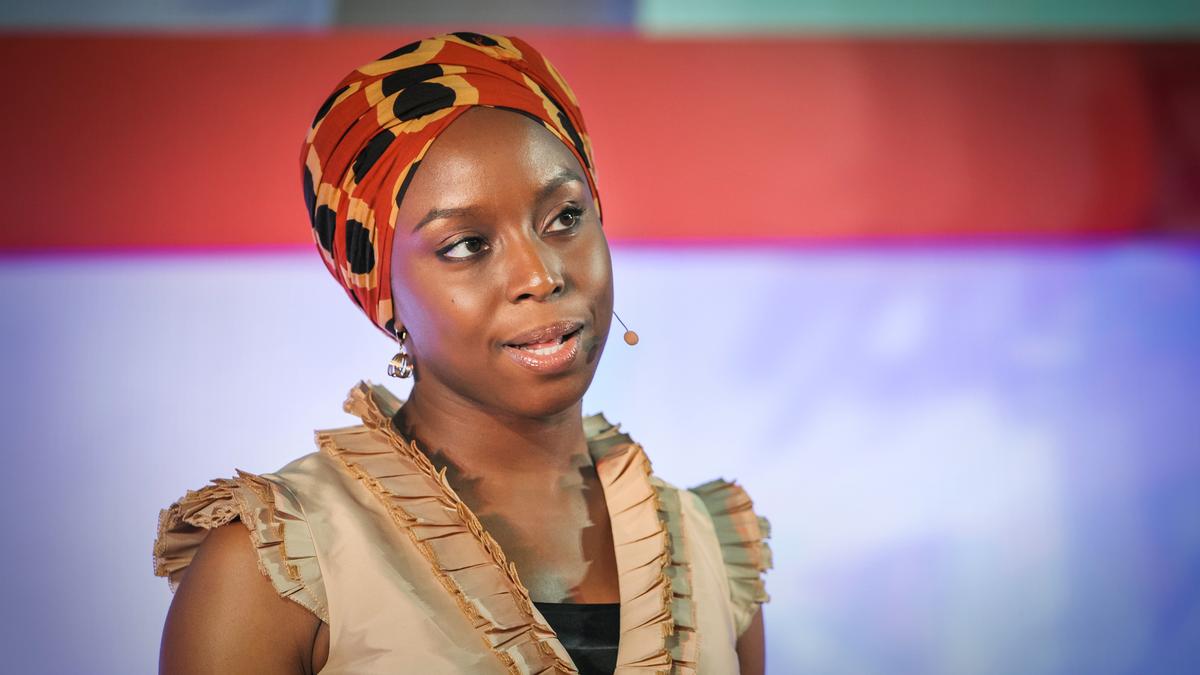The Danger of a Single Story Summary

4 min read ⌚
 ”Audi altera partem” may not mean that much to you, but it is the basis of equity and almost any justice system in the world. Translated from Latin, it means: “let the other side be heard as well.” Many times, over and over again – adds Chimamanda Ngozi Adichie in her 2009 TED Talk “The Danger of a Single Story.”
”Audi altera partem” may not mean that much to you, but it is the basis of equity and almost any justice system in the world. Translated from Latin, it means: “let the other side be heard as well.” Many times, over and over again – adds Chimamanda Ngozi Adichie in her 2009 TED Talk “The Danger of a Single Story.”
About Chimamanda Ngozi Adichie
 Chimamanda Ngozi Adichie is a Nigerian writer, one of the most acclaimed voices of her generation. She has written three novels – “Purple Hibiscus”, “Half of a Yellow Sun”, and “Americanah” – a short story collection – “The Thing Around Your Neck” – and an acclaimed book-length and TED Talk-based essay – “We Should All Be Feminists”.
Chimamanda Ngozi Adichie is a Nigerian writer, one of the most acclaimed voices of her generation. She has written three novels – “Purple Hibiscus”, “Half of a Yellow Sun”, and “Americanah” – a short story collection – “The Thing Around Your Neck” – and an acclaimed book-length and TED Talk-based essay – “We Should All Be Feminists”.
“The Danger of a Single Story Ted Talk“
Back in 1561, a London merchant by a name made famous two centuries later on, John Locke, visited Africa and wrote down that its black people are “beasts who have no houses.”
And he went on: “They are also people with-out heads, having their mouths and eyes in their breasts.”
In the opinion of contemporary Nigerian writer, Chimamanda Ngozi Adichie, this is when it all started: the African single story.
Unfortunately, all of us know it, and very few of us would ever have the opportunity to expand upon it.
The problem is that, nowadays, as opposed to 1560s, the world is globalized, and there are people who are really affected by this story.
Namely, the ones who live in Africa, have houses, and mouths and eyes on their heads.
Or, in other words, the Africans.
It’s sad to think about it: even in the 21st century, many people have a very stereotyped vision of what it means to be African.
Even if color blind, they aren’t color brave. Or, in other words: racism is only a part of the problem; pitying Africans for what they are – is the rest of it.
Adichie, now an awarded novelist, faced this second type of problem when she went to a U.S. University.
Her American roommate was fairly sure she needed to pity her, even though Adichie spoke perfect English and listened to the same music she did.
Her roommate’s pity didn’t help Adichie: she was her peer, not a child.
However, people in power always profit from perpetuating these “single stories.”
For example, the Muslim world hates the United States, because Middle Eastern governments teach their inhabitants to hate America, so they can defocus them from the more serious problems.
In Nigeria, Adichie says, government corruption and the infrastructure are serious problems. However, there’s nothing wrong with the Nigerians themselves.
And if you don’t want to perpetuate injustice, you need to hear their stories.
All of them.
Key Lessons from “The Danger of a Single Story”
1. The Broad View of America vs. The Narrow View of Americans
2. Stereotype = A Single Story
3. The Powerful Use These Single Stories to Control You
The Broad View of America vs. The Narrow View of Americans
Whatever you do and wherever you live, the chances are you are constantly exposed to American culture.
You’ve watched at least few U.S. TV shows, and numerous Hollywood blockbusters.
This is good – because it helps you get a holistic, more detailed vision of what it means to be an American.
However, Americans don’t get a similar experience about how it is to be living in any other country of the world. They don’t watch their movies, they don’t read their books. Their view is narrow.
Stereotype = A Single Story
Having a narrow view of something means having a prejudiced view of that something. In other words, you don’t need to hate the Africans to be a racist.
It’s quite enough to have a narrow vision of them, even if that compels you to pity them. That’s the danger of the single story.
The Powerful Use These Single Stories to Control You
Edward Said wrote in “Orientalism” – featured among our top nonfiction books of all time – that whatever we think about the world has been put down on paper by Westerners who profited from it.
Or, in other words, these single stories about the world are perpetuated so you don’t learn about the world.
If you want to learn – you need to start reading other nations’ books and watching their movies.
And you’ll soon enough learn that the version of the story you’re sold is because someone powerful had the interest to sell that story to you.
Like this summary? We’d Like to invite you to download our free 12 min app, for more amazing summaries and audiobooks.
“The Danger of a Single Story” Quotes
The single story creates stereotypes, and the problem with stereotypes is not that they are untrue but that they are incomplete. They make one story become the only story. Share on X The consequence of the single story is this: It robs people of dignity. It makes our recognition of our equal humanity difficult. It emphasizes how we are different rather than how we are similar. Share on X Stories matter. Many stories matter. Stories have been used to dispossess and to malign, but stories can also be used to empower and to humanize. Share on X Stories can break the dignity of a people, but stories can also repair that broken dignity. Share on X When we reject the single story, when we realize that there is never a single story about any place, we regain a kind of paradise. Share on X







